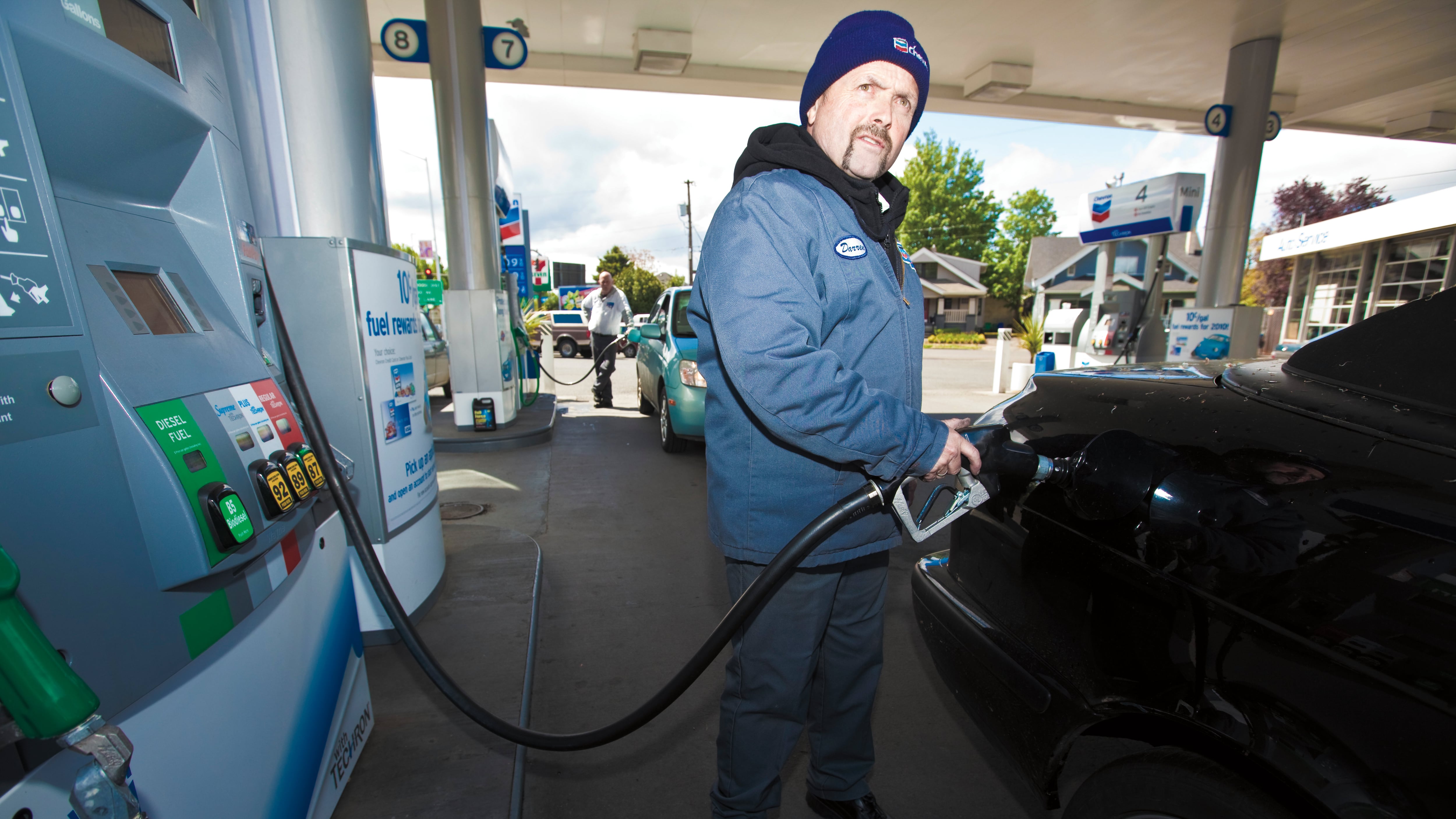As COVID-19 changes almost every aspect of Oregonians' daily lives, a dispute over how to operate a critical part of the state's infrastructure—gas stations—has emerged.
The dispute pits station owners against organized labor. Both sides say they are looking out for the best interests of workers.
Station owners say their employees are ill and eager to avoid contact with customers who may be infected with the novel coronavirus. Labor leaders say workers desperately need their jobs as the economy collapses and are being used as pawns by an industry seeking to eliminate a long-standing prohibition.
On March 18, Danelle Romain and Mike Freese, who represent the Oregon Fuels Association, a group representing most of the state's gas station owners, communicated an urgent message to the governor's office.
"During this unprecedented time, we are asking the governor to temporarily suspend the ban on statewide self-service retail fueling," they wrote.
That request threatened a practice Oregon labor officials have defended for decades—requiring in most cases that a station employee, rather than the driver, fill a vehicle. New Jersey is the only other U.S. state where customers typically can't pump their own gas. (A 2017 Oregon law legalized self-service stations in counties with fewer than 40,000 residents.)
Lobbyists for station owners told the governor's office March 19 that the rule makes no sense during the COVID-19 pandemic.
"Gas stations around the state are struggling to operate without the necessary personnel," the OFA lobbyists wrote. "Many gas attendants are unable to come to work either due to sickness, access to child care issues (with children at home), as well as the plethora of other issues people are facing right now. If there are no employees when an attendant is legally required to pump gas, it effectively closes gas stations, leaving Oregonians without the option to refuel their vehicles. This is an emergency and we need immediate, temporary relief from Oregon's self-service ban until the coronavirus public health crisis is over."
Dan Clay, president of United Food & Commercial Workers Local 555, which represents hundreds of gas station attendants at Fred Meyer and Safeway stores, dismissed those claims as naked opportunism and notes they come at a time when people are driving far less because of social distancing.
Clay questions whether station owners are simply seeking to reduce costs and take advantage of panic to change a law they've long opposed.
"The issue at hand now is pretty simple: Do we want one person touching the gas pumps or several?" Clay says. "If anything, other states should be following Oregon's lead and having only one person touch the pump. But instead the industry here is using this crisis to try to get rid of something they don't like."
The Oregon State Fire Fighters Council agrees with UFCW and shared its concerns in testimony to the Legislature's Joint Special Committee on Coronavirus Response on March 20.
Karl Koenig, president of that group, pushed back against what he called a "purported labor shortage." He said switching to self-service would be dangerous and could divert first responders from other work.
"Imagine a high-volume fuel stop backing up into the street while a one of our valued citizens gathers a crowd of people to help fuel their vehicle, going in a complete opposite direction of the governor's social distancing directive," Koenig testified. "Imagine the number of unwashed hands exchanging contact on frequently touched items. The lack of training and the cost of rolling out a program to ensure everyone's safety is a function of government.
"I'm personally part of the current overhead team working with the Oregon State Fire Marshal's Office. We are at critical mass for new projects; this concept is in direct conflict with our current mission: keeping Oregon safe, confident their government is focused on its most valuable resource, its people. Self-service fuel hardly meets that threshold.
"Your Oregon State Firefighters urge a delay of any policy change regarding self-service fuel for all of our safety and predictability in these volatile times. Rarely does 'easy fix' and 'the right thing' intersect."
After the conclusion of the legislative hearing, the Oregon Fuels Association sent Brown's energy adviser, Kristen Sheeran, an email late Friday afternoon, re-emphasizing station owners' concerns.
"We have heard from [companies within the past hour] owning hundreds of gas stations in Oregon," the OFA's Romain and Freese wrote. "What we learned is some stations have already cut hours, but many more will cut hours starting on Monday. Gas stations have closed."
They provided examples of 14 companies, many of which own multiple stations, that said they are struggling to staff their stations because of ill or reluctant workers.
"In order to ensure fuel is available to all Oregonians, we need to act NOW!!!!" the lobbyists wrote to the governor's staff.
Negotiations on whether to temporarily lift the prohibition on self-service across most of the state continued over the weekend.
Brown's spokesman Charles Boyle says the governor hasn't decided whether to issue the temporary relief the industry seeks or stick with the status quo. "My understanding is that this is an issue our office is looking into," Boyle says, "but as of right now the conversations are ongoing."
